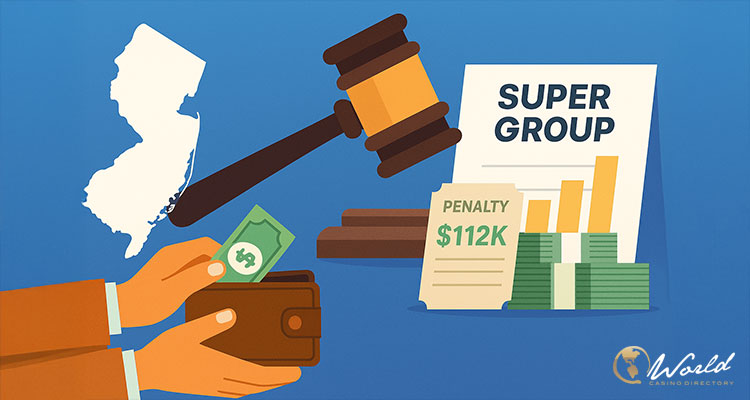The New Jersey Division of Gaming Enforcement (DGE) has imposed a civil penalty of $112,188 against Digital Gaming Corporation (DGC) — the company behind Super Group brands such as Betway, Jackpot City and Spin Casino — after finding multiple breaches of self-exclusion and responsible-gaming rules. The violations occurred between March 2024 and January 2025, when the operator failed to promptly add self-excluded patrons to the state’s exclusion list and allowed some to continue gambling or exceed their own deposit caps.
Repeated Compliance Breakdowns Cited by Regulator
According to DGE Interim Director Mary Jo Flaherty, “From March 2024 through January 2025, DGC failed to timely add self-excluded individuals to the Division’s Self-Exclusion List. Of those not added, multiple patrons, who should have been self excluded, were able to wager on other internet gaming and sports wagering platforms after their self exclusion date.” She added that “These incidents reflect failures in DGC’s internal controls and compliance procedures and constitute violations of the above referenced statutes and regulations. Such failures are contrary to the policies of the Casino Control Act…and therefore are impermissible.”
The investigation found that between July 18 and August 7, 2024, DGC also failed to properly process the Division’s self-exclusion list, letting restricted players open or retain accounts on its websites. Additional lapses occurred on June 6 and July 23 of 2025, when customers were able to surpass their pre-set deposit limits — another breach of New Jersey’s responsible-gaming standards.
Altogether, the company was ordered to pay a $112,188.96 fine and return $5,278 in winnings earned from self-excluded patrons. As reported by SBC Americas, the agency noted that the civil penalty is the only disciplinary action at this stage but warned it could take further steps if subsequent violations surface.
Exit from the U.S. Market
The fine comes after Super Group confirmed its withdrawal from the United States in mid-2025, ending both its online casino and sports-betting operations. Neal Menashe, Chief Executive Officer of Super Group, announced during the company’s second-quarter earnings call on July 8 that the exit was driven by “the evolving regulatory landscape and the U.S. unit’s financial performance.”
“This is a difficult decision, particularly because our U.S. team has worked hard and made progress over recent quarters,” Menashe said. “Nonetheless, recent regulatory developments combined with ongoing assessment of capital allocation requirements have led us to believe that our stringent hurdle for return on capital will likely not be met in this market any time soon. We therefore intend to focus capital and resources on markets where we see the greatest opportunity for scalable, sustainable, profitable super growth, with a disciplined emphasis on operational efficiency.”
Following that announcement, Super Group began a phased shutdown. Its Betway sportsbook ceased operations in New Jersey in August 2024, while its online casino brands Jackpot City and Spin Casino officially left U.S. markets on October 16, 2025. The DGE penalty therefore applies to a company no longer active in the state, though the violations occurred before its departure.
The case has arrived as New Jersey authorities increase scrutiny of responsible gaming standards across licensed operators. On September 16, the DGE proposed a rule requiring all online gambling licensees to implement mandatory responsible-gaming reviews whenever accounts trigger specific risk indicators — such as rapid deposit spikes or repeated losses beyond self-imposed limits.
Flaherty emphasized that failures like those found at DGC undermine the state’s core consumer-protection objectives. The Division maintains that strict compliance with self-exclusion and deposit-limit rules is essential to protect players from harm and to ensure public trust in New Jersey’s regulated market.
Although DGC’s U.S. operations have ceased, the company remains liable for its past conduct under state law. Its penalty serves as one of the first major 2025 enforcement actions linked to responsible-gaming breaches since the state began tightening its compliance framework earlier this year.


